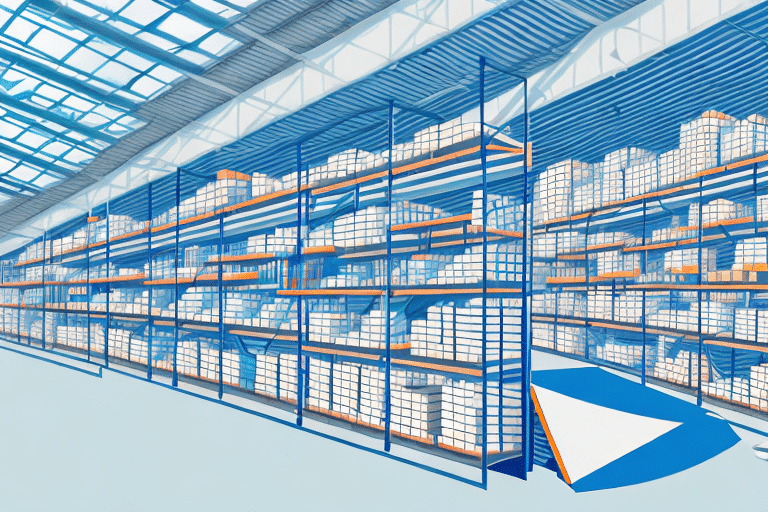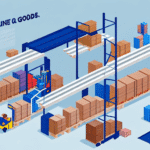Understanding the Importance of Efficient Retail Distribution
Efficient retail distribution is pivotal for achieving success and profitability in the highly competitive retail landscape. It encompasses the movement of goods from manufacturers or suppliers to retailers, ultimately reaching the end-consumer. Optimizing distribution ensures that products are transported, stored, and delivered in a timely and cost-effective manner.
Key benefits of efficient distribution include:
- Reduced Costs: Streamlining processes minimizes operational expenses.
- Improved Customer Satisfaction: Ensures product availability and timely delivery.
- Increased Sales: Availability and reliability can boost consumer trust and sales figures.
Investing in advanced technologies is essential for retailers aiming to maintain competitiveness. Technologies such as inventory management systems and route optimization software enable better tracking and decision-making, ultimately enhancing overall distribution efficiency.
Key Challenges in Retail Distribution
Demand Fluctuations and Supply Chain Disruptions
Retailers often face unpredictable demand patterns and supply chain disruptions. These can result from seasonal variations, economic shifts, or unforeseen events like natural disasters.
High Competition from E-commerce
The rise of e-commerce has intensified competition, with online retailers offering faster and more convenient delivery options. Traditional retailers must adapt their distribution networks to meet these evolving consumer expectations.
Adapting to Changing Consumer Preferences
Modern consumers demand personalized experiences, faster delivery times, and flexible return policies. Retailers must continuously innovate their distribution strategies to align with these preferences.
Strategies to Streamline Retail Distribution Processes
Lean Inventory Management
Implementing just-in-time (JIT) inventory systems helps retailers reduce holding costs and minimize waste. By ordering and receiving inventory only when needed, retailers can maintain optimal stock levels.
Optimizing Transportation and Delivery
Efficient transportation planning and route optimization can significantly reduce delivery times and costs. Utilizing data analytics tools to plan the most effective routes ensures timely deliveries and enhances customer satisfaction.
Enhancing Quality Control
Ensuring that products are free from damage and defects before reaching consumers is crucial. Robust quality control processes help maintain product integrity and reduce returns.
Leveraging Technology and Automation in Distribution
Advanced Inventory Management Systems
Modern inventory management systems provide real-time tracking of stock levels, enabling retailers to make informed replenishment decisions. According to a Gartner report, the ERP software market grew by 7% in 2022, highlighting the increasing adoption of such technologies.
Automation Technologies
Automation tools like RFID, barcode scanning, and automated sorting systems enhance accuracy and speed in distribution processes. These technologies reduce human error and increase overall productivity.
Data Analytics
Leveraging data analytics allows retailers to gain insights into consumer behavior, inventory trends, and supply chain efficiencies. This data-driven approach facilitates proactive decision-making and continuous improvement.
Enhancing Inventory Management and Supply Chain Visibility
Accurate Demand Forecasting
Utilizing historical sales data and market trends aids in predicting future demand, helping retailers adjust inventory levels accordingly. Accurate forecasting prevents overstocking and stockouts, ensuring optimal inventory turnover.
Real-Time Supply Chain Monitoring
Implementing real-time monitoring systems provides transparency throughout the supply chain. This visibility helps identify and address bottlenecks promptly, maintaining the flow of goods from suppliers to consumers.
Collaborative Partnerships
Building strong relationships with suppliers and logistics partners fosters collaboration and efficiency. Transparent communication and shared objectives enhance overall supply chain performance.
Sustainable Practices in Retail Distribution
Eco-Friendly Packaging
Adopting sustainable packaging solutions reduces environmental impact and meets consumer demand for responsible practices. Utilizing recyclable and biodegradable materials is a key strategy in this area.
Reducing Carbon Emissions
Optimizing transportation routes and investing in energy-efficient logistics can significantly lower carbon emissions. According to a EPA report, transportation accounts for a significant portion of supply chain emissions.
Implementing Renewable Energy Sources
Integrating renewable energy into distribution centers and warehouses can reduce dependency on fossil fuels and lower operational costs in the long term.
Future Trends and Innovations in Retail Distribution
Drone Delivery
Drone technology is revolutionizing last-mile delivery, offering faster and more efficient delivery options. Companies like Amazon are pioneering this innovation to meet growing consumer demands.
Artificial Intelligence and Machine Learning
AI and machine learning algorithms enhance demand forecasting, route optimization, and inventory management. These technologies enable retailers to make smarter, data-driven decisions.
Blockchain in Supply Chain Management
Blockchain technology provides transparent and immutable records of transactions, improving traceability and trust within the supply chain. This innovation can significantly enhance supply chain security and efficiency.
Conclusion
Maximizing efficiency in retail distribution is essential for retailers to remain competitive, satisfy customer demands, and achieve long-term growth. By streamlining processes, leveraging advanced technologies, embracing sustainable practices, and staying informed about industry trends, retailers can optimize their distribution strategies and overcome the challenges of the dynamic retail environment.






















